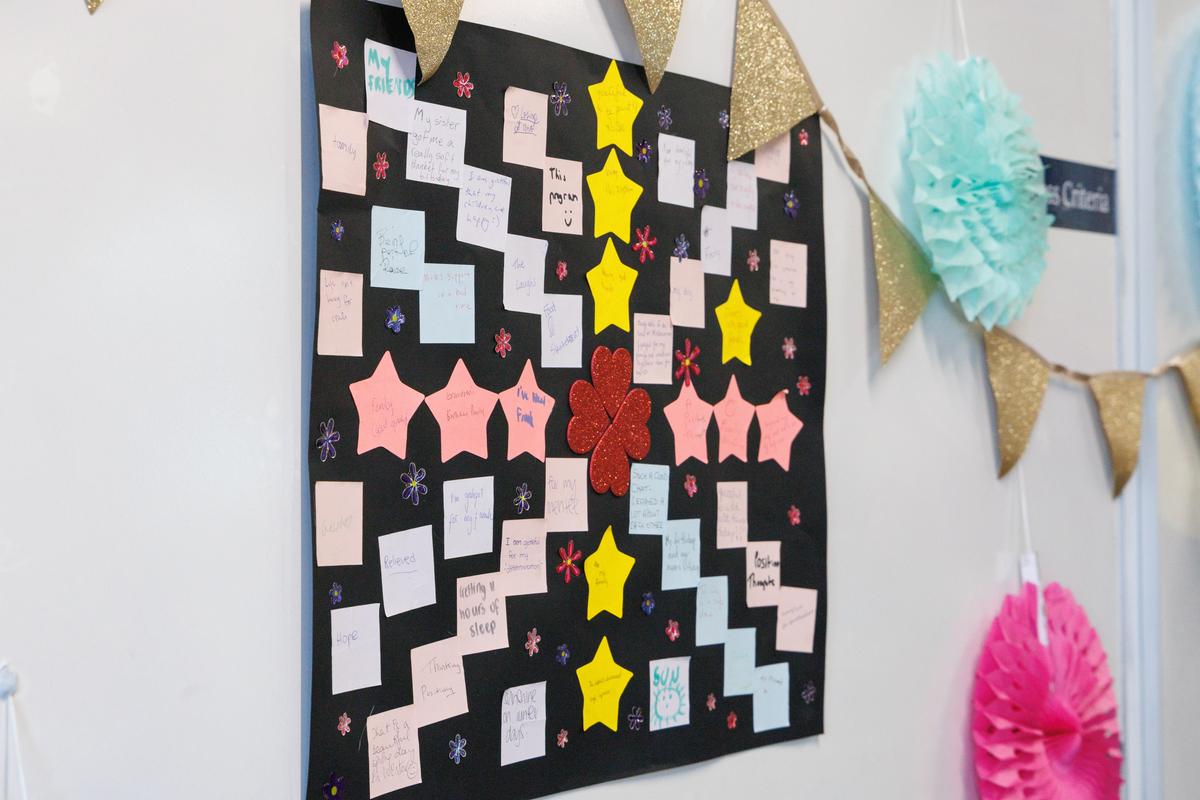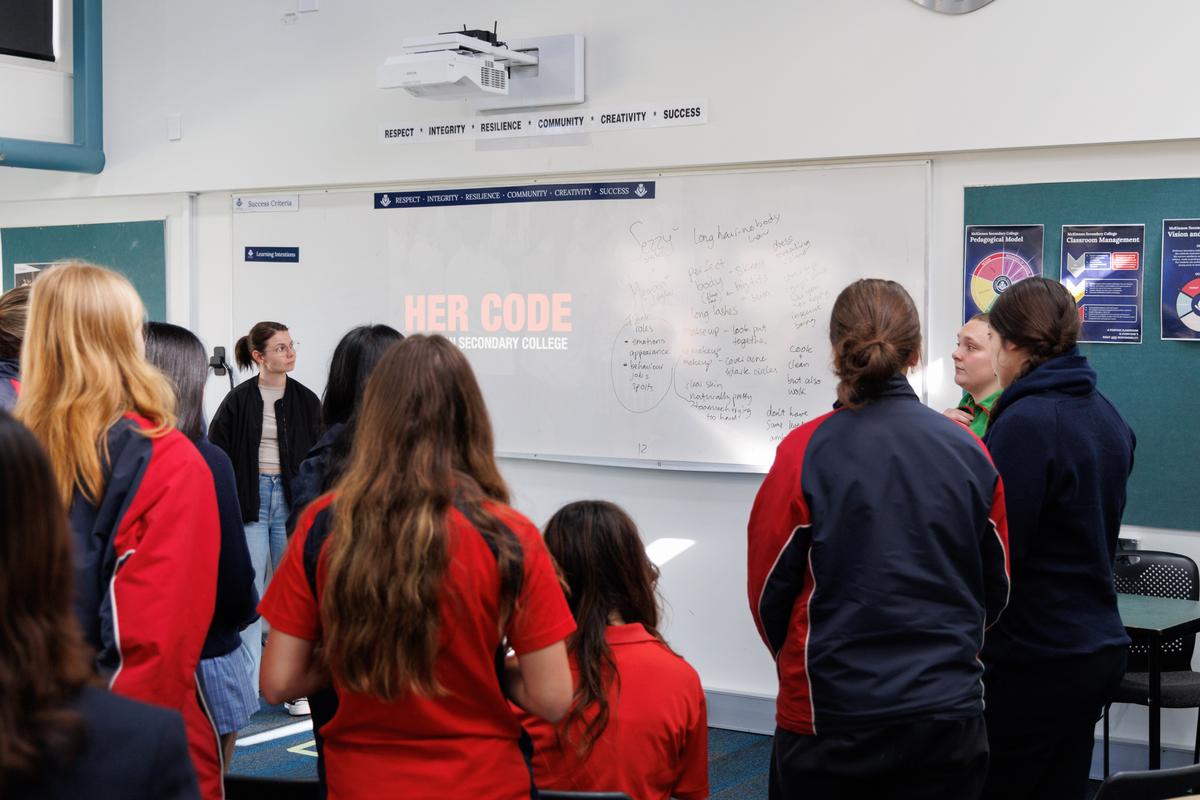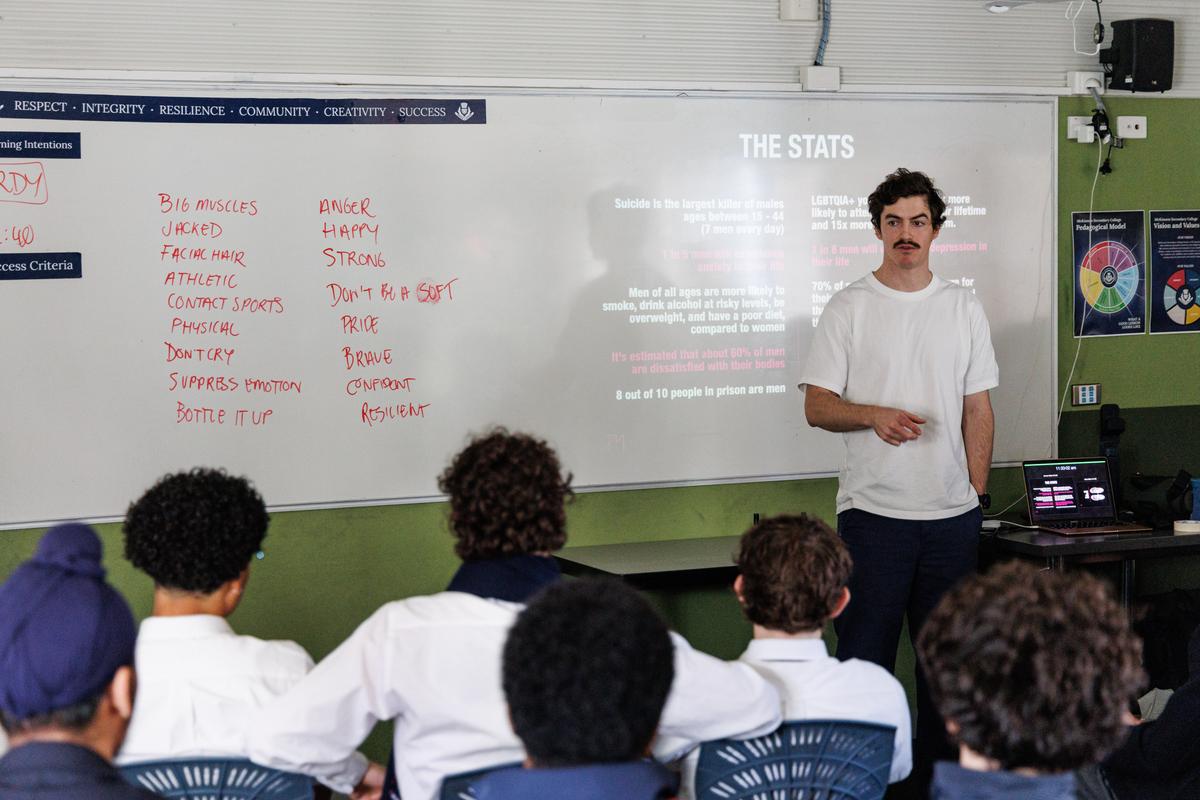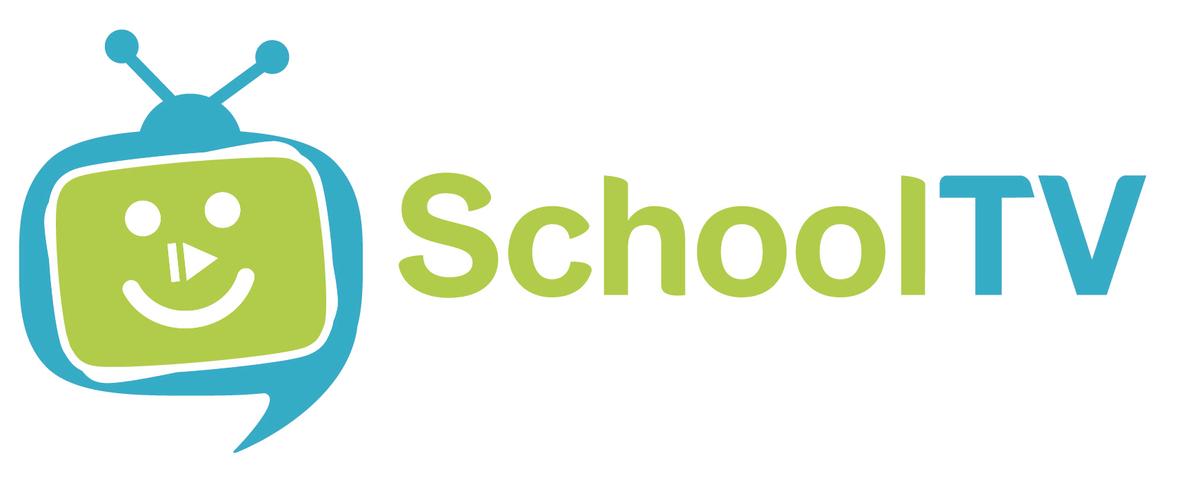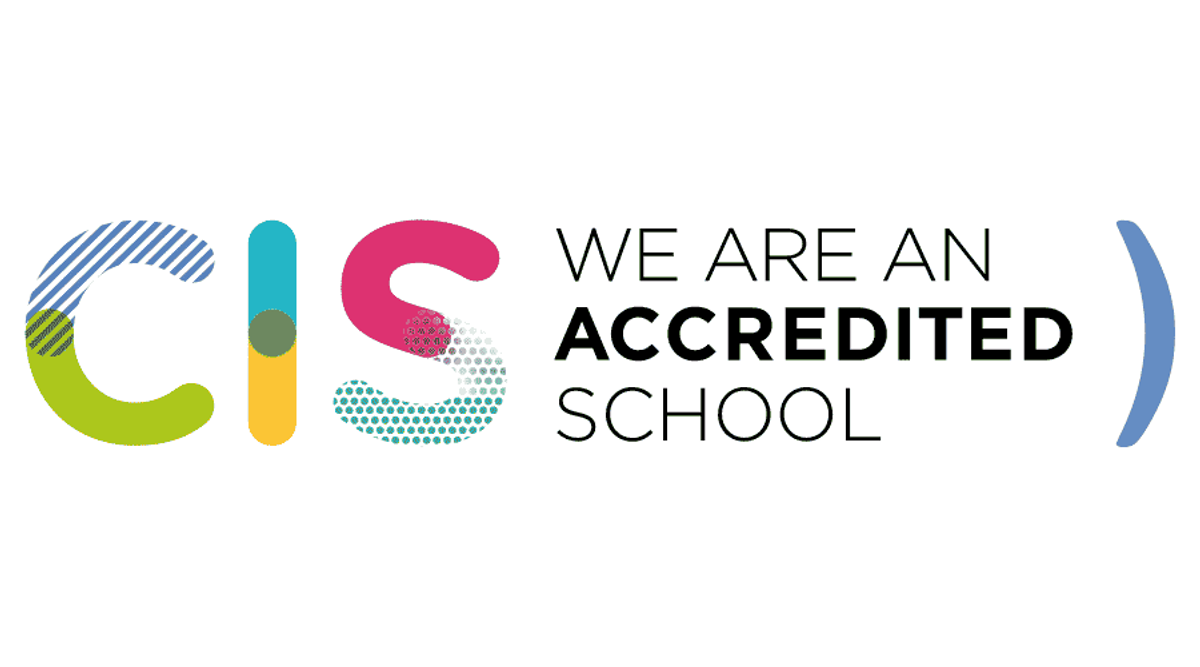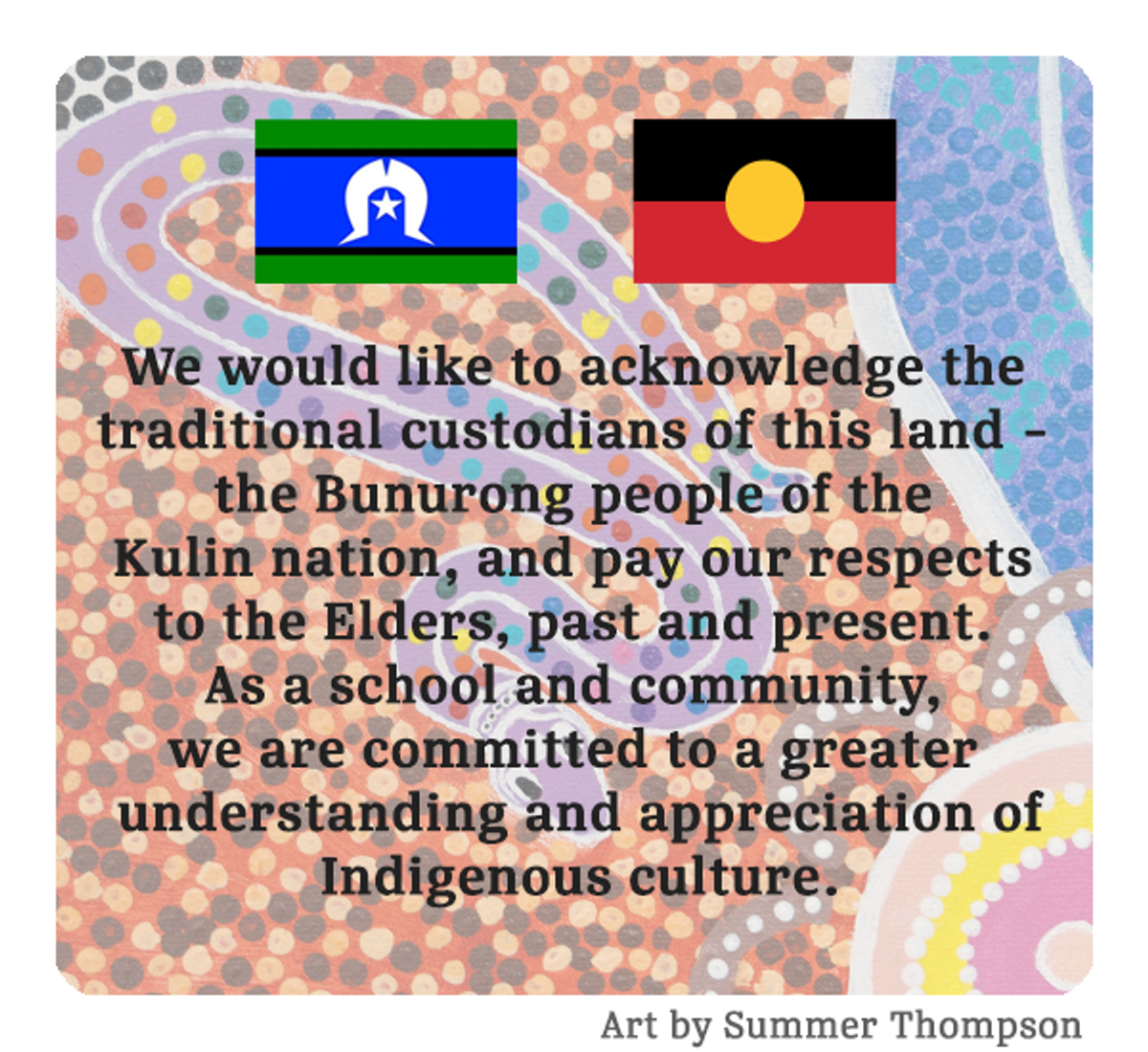Student Wellbeing Team
McKinnon Secondary College is committed to fostering a positive learning environment and enhancing student outcomes through impactful programs. Our Student Wellbeing Team plays a crucial role in this mission by implementing targeted interventions, forming collaborative partnerships, and launching proactive initiatives that ensure every student feels valued, supported, and empowered to thrive.
Our multidisciplinary team includes counsellors, social workers, psychologists, family therapists, an occupational therapist, and a youth worker. Managed by the Head of Wellbeing, who reports directly to the Principal, this team provides comprehensive support across a wide range of student mental health and wellbeing issues.
Challenges We Address
The Student Wellbeing Team is equipped to assist students with a variety of social, emotional, and behavioural challenges, including but not limited to:
- Social difficulties
- Emotional challenges
- Behavioural difficulties
- Learning needs
- Family challenges
- Grief and loss
- School refusal
- Risk-taking behaviours
- Mental health concerns
Child Safety Concerns
Services We Offer
The team offers a range of services to support students, including:
- Individual Counselling
- Therapeutic Groups
- Behaviour Support Planning and Support
- Parent Education Series
- Referral to External Support Services
- Secondary consultation and professional development of staff
- Positive Mental Health Promotion and liaison with school-wide programs relevant to wellbeing
You can contact the Student Wellbeing Team via wellbeing@mckinnonsc.vic.edu.au or call 03 8520 9000.
Key Programs and Initiatives Led by the Student Wellbeing Team
Young Carers Program: Supported by Little Dreamers Australia, this program offers vital assistance to students who are primary carers for family members facing challenges. It provides a supportive space for young carers to connect, learn, and share experiences, fostering a sense of belonging within our school community.
Mental Health First Aid Program: Reflecting our commitment to a school-wide approach to wellbeing, this program equips both staff and students with the skills to identify and respond effectively to mental health challenges, thereby promoting a supportive and understanding environment for all.
RAISE Mentoring Program: Tailored for our Year 8 and 9 students, this program pairs them with trusted adult mentors who provide guidance and support. These meaningful relationships are designed to enhance both personal and academic growth.
Retrogaming Club: A student-led initiative, the Retrogaming Club provides a space where students can connect over retro games, promoting social interaction and a sense of belonging among participants.
Social Skills Program (Social Thinking Program): Delivered by our psychologists, this program offers social coaching to students needing support with interpersonal relationships, enhancing their social skills and overall wellbeing.
School-wide Mindfulness Program: Integrated into our school culture, this program engages students in mindful moments three times a week. Activities include mindful photography projects, a mindful colouring wall, and special events during Mental Health Week, all aimed at promoting emotional regulation and wellbeing.
Respectful Relationships Initiative: The Respectful Relationships program is a state-wide initiative across Victoria, involving schools, local councils, and sporting clubs. At McKinnon Secondary College, our Student Wellbeing Team leads efforts to promote a culture of respect and address the gendered drivers of violence. We are dedicated to preventing issues related to respectful relationships and providing support to those affected.
This program encourages open discussions about respect within our community, focusing on positive behaviours that address gender-based violence and inequality. It is a key part of the Victorian Curriculum from Foundation to Year 12, helping students build healthy relationships, resilience, and confidence - leading to better academic and social outcomes.
By challenging gender stereotypes and fostering equality, McKinnon Secondary College is proud to help create a safer and more respectful community for everyone.
If you or someone you know is experiencing violence or fear of violence, contact 1800 RESPECT (1800 737 732) or visit 1800Respect. For more information about Respectful Relationships in the Victorian Curriculum, visit Respectful Relationships | vic.gov.au
Positive Education Program: In collaboration with teaching staff, our wellbeing team implements positive education curriculum materials and supports faculty in integrating these practices into the classroom. This program aims to foster resilience, optimism, and growth mindsets among students.
In addition to these programs, the Student Wellbeing Team also works closely with our Inclusive Education Team to support and enhance inclusive education practices. The team provides specialised assessments, interventions and reports to ensure that all students receive the support they need to succeed.
Referral Process and Access to Services
There are three primary ways to refer a student to the Student Wellbeing Team for support:
Self-Referral: Students can self-refer by contacting the team via email or by visiting the Wellbeing Office located in S Block on the McKinnon Road Campus or Level 3 at the East Campus. Parental permission is generally required, but exceptions may apply, particularly for senior students.
Staff Referral: The Principal Class, Heads of Year Levels, Student Managers, or Health Centre Nurses can refer a student if they have concerns about the student's wellbeing.
Parent Referral: Parents can request an appointment for their child by contacting the Student Wellbeing Team via phone or email.
Collaboration with External Services: In some cases, a student may be referred to external support services. We respect the choices of students and parents who seek professional support outside the school. The Student Wellbeing Team values working collaboratively with external services to ensure comprehensive care. We encourage parents to communicate with the school if there are significant issues affecting their child’s health or wellbeing.
Child Safety
McKinnon Secondary College takes its commitment to child safety seriously. For further information, please refer to the Child Safety Policy and Code of Conduct on our website.
Confidentiality
The Student Wellbeing Team ensures that all information shared during counselling is kept confidential, except in cases where a student is assessed to be at risk to themselves or others. The counselling process, including confidentiality limits, is explained to students prior to the start of counselling sessions.
Online Wellbeing Resource
To further assist our parents, we are pleased to offer access to SchoolTV, an online resource that provides credible information and practical support strategies. Through this platform, parents can access insights from Australia’s leading experts, offering videos, articles, and a range of tools and resources in easily digestible formats.
Further Resources
For immediate support and counselling, please contact the following organisations:
- Lifeline: 13 11 14
- Kids Helpline:1800 551 800
- Headspace:1800 650 890
- Beyond Blue:1300 224 636
- Parent Line: 132 289
- Alfred CHYMS: 8552 0555 (Alfred Child and Youth Mental Health Service)
- Glen Eira Youth Services: 03 9524 3676
Family Violence Support
1800 RESPECT: 1800 737 732 - A national sexual assault, domestic and family violence counselling service.
Safe Steps Family Violence Response Centre: 1800 015 188 - Provides support and information for those affected by family violence.
Men’s Referral Service: 1300 766 491 - Offers support and advice for men seeking to change their behaviour and those affected by family violence.
Victoria Police Family Violence Unit: Provides information and support for those experiencing family violence.
Resources and Helpful Links
For more information on adolescent health and wellbeing, Headspace offers a variety of valuable resources, links, contacts, and fact sheets for students and parents. Here are additional resources that can provide further support and guidance:
BITE BACK: A free, self-guided online wellbeing and resilience program for young people aged 13–16 years.
Smiling Mind: Provides mindfulness and meditation programs designed to improve mental well-being and resilience in young people.
BRAVE Program: An interactive, free online program for the prevention and treatment of childhood and adolescent anxiety.
Children of Parents with a Mental Illness (COPMI): Offers information for kids, teens, and adults who have a parent with a mental health condition.
Moodgym: A free, interactive program that helps you identify and overcome problem emotions, and develop good coping skills for the future.
Reach Out: Offers information and resources specifically designed for young people to help them figure things out and make life better.
Young Carers: A resource for young carers to learn about support services, access resources, and share their stories and opinions.
Australian Childhood Foundation: Offers support and advocacy for children and families dealing with trauma and abuse.
The Butterfly Foundation: Supports individuals struggling with eating disorders and body image issues through support services and advocacy.
SANE Australia: Provides support, information, and resources for individuals affected by complex mental health issues.
Black Dog Institute: Provides research-based resources and support for mental health issues, including mood disorders and depression.
Drug Info ADF: Offers information on drug and alcohol issues, including prevention, treatment, and support services.

